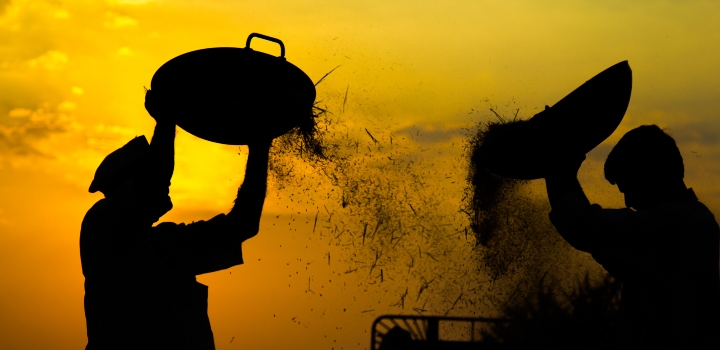Continued strict control measures needed to reduce new COVID-19 strains
By: Communications

A group of scientists is calling on governments to consider the continued use of strict control measures as the only way to reduce the evolution and spread of new COVID-19 variants.
The experts in evolution, virology, infectious disease and genomics - at the University of East Anglia (UEA), Earlham Institute and University of Minnesota - warn that while governments are negotiating a “precarious balance” between saving the economy and preventing COVID-19 fatalities, stronger action now is the best way to mitigate against more serious outcomes from such virulent strains later.
While COVID-19 vaccine deployment is now underway, a threat to vaccine effectiveness comes from other emerging strains, both existing - such as the UK, South Africa and Brazil variants - and those yet to come.
In an editorial for the journal Virulence, Professors Cock van Oosterhout, Neil Hall, Hinh Ly, and its editor-in-chief Prof Kevin Tyler say “continuing public health efforts to encourage vaccination as well as continued use of proper personal protective equipment (PPE), such as proper masking and maintaining safe social interactions, is of utmost importance.
“Humanity is faced with a new reality. The faster we adapt, the better our long-term prospects. We must stop the evolution and spread of more virulent virus strains now. We, therefore, support public health policies with strict control measures in order to
protect our public health system, our individual wellbeing, and our future.”
The researchers look back at what has happened and how best to respond now, highlighting that the roll-out of economic stimulus packages and related activities in many countries appears to have fuelled the rate of person-to-person transmission.
As a result, they say at the start of winter the population number of the virus continued from a much higher base than would otherwise have been the case, adding: “By not absolutely minimizing the R number when we had the chance, we extended the pathogen transmission chains, providing more opportunity for it to mutate and evolve into more virulent variants.”
Additionally, they highlight that an increased virulence - or higher R value - can also result from the virus evolving the ability to infect people for longer. The authors warn that continued virus evolution in animal hosts, such as cats and mink, followed by transmission into susceptible human hosts, poses a significant long-term risk to public health, suggesting that the vaccination of certain domesticated animals might be important to halt further virus evolution and “spillback” events.
“Vaccination against a viral pathogen with such high prevalence globally is without precedent and we, therefore, have found ourselves in unchartered waters. However, what we can be certain about is that, as long as the vaccine stays effective, a higher uptake of the vaccines will: reduce the number of COVID-19-related deaths, stem the spread of the transmissible strain of the virus, and reduce risk of the evolution of other, even more, virulent strains in the future.
“Furthermore, it is not unthinkable that vaccination of some domesticated animal species might also be necessary to curb the spread of the infection.”
The editorial ‘COVID-19 evolution during the pandemic – Implications of new SARS-CoV-2 variants on disease control and public health policies’, Cock van Oosterhout, Neil Hall, Hinh Ly, and Kevin M Tyler, is published in Virulence on January 25, 2021.
Related Articles

Employment and wellbeing often don’t correlate
Not all jobs are good jobs, and new research from the Universities of East Anglia (UEA) and Birmingham finds such work can have a negative impact on wellbeing.
Read more
Mental health disorders and alcohol misuse more common in LGB people
Lesbian, gay and bisexual (LGB) people are significantly more likely to have mental health conditions and report alcohol and drug misuse than heterosexual people according to a new study led by UCL in collaboration with the University of East Anglia and
Read more
New report on post-Brexit challenges and opportunities
Brexit and Beyond, a new report from academic think tank UK in a Changing Europe, underlines the challenges and opportunities that confront the United Kingdom now it has left the European Union.
Read more